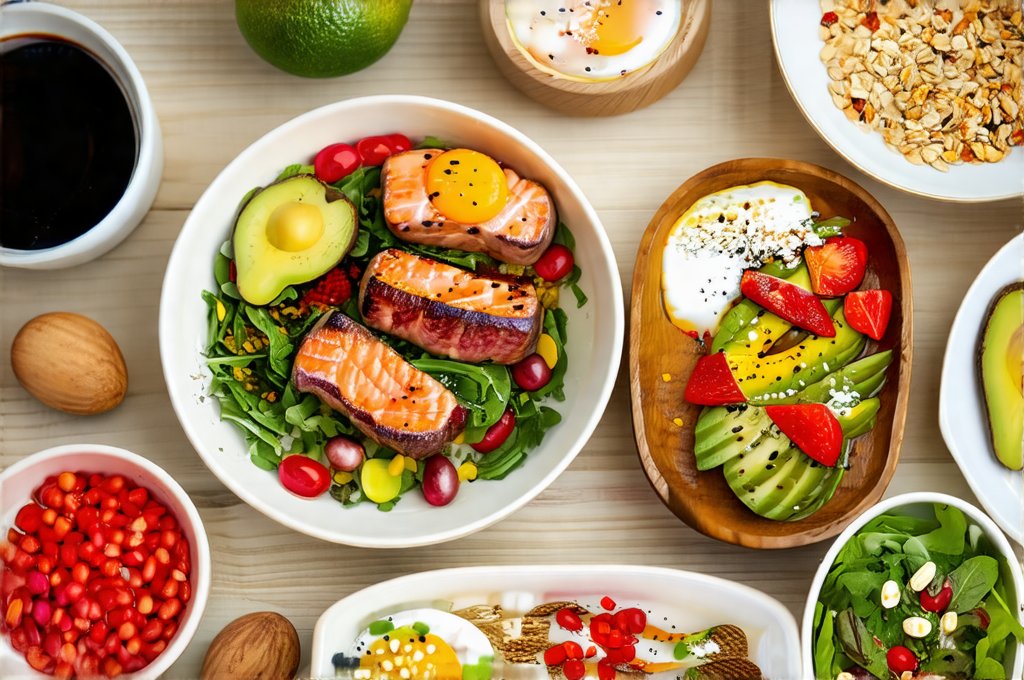Our modern lifestyles often involve hurried meals, stress-inducing schedules, and dietary choices that can take a toll on our gut microbiome – the complex ecosystem within our digestive system crucial for overall health. Weekends present a unique opportunity to consciously shift gears and provide some much-needed support to this vital part of ourselves. This isn’t about restrictive dieting or deprivation; it’s about thoughtfully incorporating practices that nurture gut health, leading to improved digestion, boosted immunity, enhanced energy levels, and even better mental wellbeing. A “gut reset” doesn’t require drastic changes, but rather a mindful approach to weekend eating that prioritizes nourishing foods and restorative habits.
Many of us unknowingly contribute to imbalances in our gut microbiome through consistent exposure to processed foods, sugar, stress, and certain medications. This can lead to symptoms like bloating, indigestion, fatigue, skin issues, or even mood swings. Utilizing the weekend as a period for focused gut health support allows us to counterbalance these effects, rebuild beneficial bacteria populations, and create a foundation for sustained wellness throughout the week. It’s about giving your digestive system a break from constant processing and providing it with the tools it needs to thrive – ultimately supporting not just physical health but also mental clarity and emotional balance. If you’re struggling with this, consider eating mindfully.
Weekend Meal Planning: Building Blocks of Gut Health
The cornerstone of any successful gut reset is thoughtful meal planning. This doesn’t need to be elaborate or time-consuming; rather, it’s about proactively choosing foods that support a healthy microbiome. Focus on incorporating prebiotic rich foods – these act as food for the beneficial bacteria in your gut – and probiotic rich foods which contain live cultures of those helpful bacteria themselves. A well-planned weekend menu should prioritize whole, unprocessed ingredients, minimizing sugar, artificial sweeteners, and excessive amounts of saturated or trans fats. Think vibrant vegetables, lean proteins, healthy fats, and fermented foods.
Consider building your meals around a framework that ensures diversity. A diverse diet is key to fostering a diverse microbiome, which is linked to better health outcomes. Aim for incorporating at least 30 different plant-based foods per week – this can be surprisingly easy with mindful choices across the weekend. Don’t underestimate the power of simple swaps: choosing whole grains over refined grains, opting for water instead of sugary drinks, and adding a side of fermented vegetables to your meals are all small changes that can make a big difference. You might also want to check the best grains for a GERD safe eating plan.
Finally, hydration is crucial. Often, we mistake thirst for hunger, leading to unnecessary snacking or poor food choices. Ensure you’re drinking plenty of water throughout the weekend – aiming for at least 8 glasses per day – and consider incorporating herbal teas known to support digestion like ginger or peppermint tea. Proper hydration aids in nutrient absorption and helps keep things moving smoothly through your digestive system. It’s important to understand how much you should eat for optimal gut health too.
Gentle Digestion Strategies
Beyond what you eat, how you eat significantly impacts gut health. Many of us rush through meals without fully chewing our food, placing a significant burden on the digestive system. Mindful eating is a powerful tool for supporting optimal digestion and absorption. This means slowing down, savoring each bite, and paying attention to your body’s hunger and fullness cues.
- Chew thoroughly: Aim for 20-30 chews per bite. This breaks down food mechanically, making it easier for enzymes to do their job.
- Eat in a relaxed environment: Stress inhibits digestion. Create a calming atmosphere during meals – turn off the TV, put away your phone, and focus on enjoying your food.
- Avoid large portions: Overeating can overwhelm the digestive system. Opt for smaller, more frequent meals or snacks throughout the day.
Another helpful strategy is to incorporate gentle movement after meals. A short walk, some light stretching, or even a few minutes of yoga can stimulate digestion and prevent bloating. Avoid strenuous exercise immediately after eating, as this can divert blood flow away from the digestive system. Consider adding digestive bitters before meals – these herbal tinctures help stimulate the production of digestive enzymes and improve gut motility. It’s also wise to avoid eating too late for good digestion.
Fermented Foods: A Probiotic Powerhouse
Fermented foods are a fantastic way to introduce beneficial bacteria into your gut. These foods have undergone a process of fermentation, which not only preserves them but also creates a wealth of probiotics – live microorganisms that contribute to a healthy microbiome. Incorporating fermented foods into your weekend diet is an easy and delicious way to support gut health.
Examples of probiotic-rich fermented foods include:
– Kefir: A fermented milk drink similar to yogurt, but with a wider range of beneficial bacteria.
– Sauerkraut: Fermented cabbage, rich in probiotics and Vitamin C.
– Kimchi: A traditional Korean side dish made from fermented vegetables, typically napa cabbage and radish.
– Yogurt (with live cultures): Choose plain, unsweetened yogurt with active bacterial cultures.
– Kombucha: A fermented tea drink that offers a slightly effervescent and tangy flavor.
Start slowly when introducing fermented foods into your diet, as some people may experience mild digestive upset initially. Begin with small portions and gradually increase the amount over time. Look for unpasteurized versions whenever possible, as pasteurization can kill off beneficial bacteria. Remember to read labels carefully – many commercially available products contain added sugar or artificial ingredients which negate their health benefits. Mindful eating can really help with incorporating these foods.
Weekend Hydration & Herbal Support
As mentioned earlier, adequate hydration is paramount for gut health and overall wellbeing. Water helps move food through the digestive system, prevents constipation, and supports nutrient absorption. Beyond water, consider incorporating herbal teas known to soothe digestion and promote a healthy gut microbiome. Ginger tea can help relieve nausea and bloating, while peppermint tea can relax the intestinal muscles and reduce gas. Chamomile tea has calming properties that can help reduce stress, which indirectly benefits gut health.
- Infused Water: Add slices of cucumber, lemon, or berries to your water for a refreshing flavor boost and added nutrients.
- Herbal Tea Rituals: Make herbal teas part of your weekend routine – perhaps enjoy a cup with breakfast or before bed.
- Electrolyte Balance: If you’re physically active over the weekend, replenish electrolytes lost through sweat with coconut water or an electrolyte drink (choose one low in sugar).
Finally, consider incorporating prebiotic fibers into your hydration strategy. You can add a teaspoon of ground flaxseed or chia seeds to your water – these provide both fiber and omega-3 fatty acids, further supporting gut health. These simple additions to your weekend routine can make a significant difference in how you feel physically and mentally. Sometimes we’re eating too clean and need to balance things out! And remember smart reflux hacks can also help with social events.


















